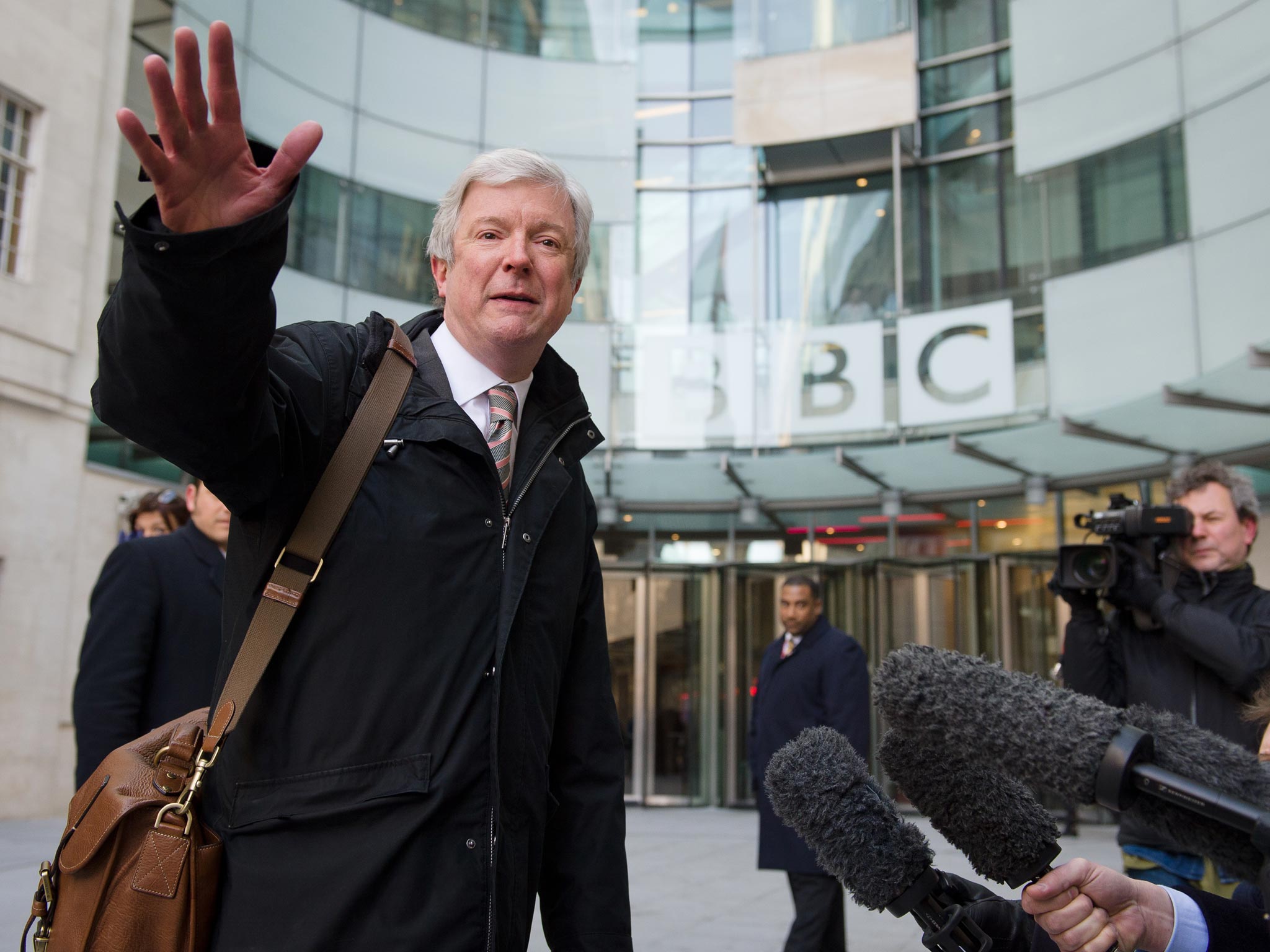BBC chief Tony Hall turns on ‘compromised’ global rivals in furore over World Service ads

Your support helps us to tell the story
From reproductive rights to climate change to Big Tech, The Independent is on the ground when the story is developing. Whether it's investigating the financials of Elon Musk's pro-Trump PAC or producing our latest documentary, 'The A Word', which shines a light on the American women fighting for reproductive rights, we know how important it is to parse out the facts from the messaging.
At such a critical moment in US history, we need reporters on the ground. Your donation allows us to keep sending journalists to speak to both sides of the story.
The Independent is trusted by Americans across the entire political spectrum. And unlike many other quality news outlets, we choose not to lock Americans out of our reporting and analysis with paywalls. We believe quality journalism should be available to everyone, paid for by those who can afford it.
Your support makes all the difference.The BBC Director-General, Tony Hall, has made an outspoken attack on the corporation’s global broadcasting rivals – accusing them of compromising editorial standards.
Writing in The Independent, Lord Hall claimed some international networks were willing to “tilt their editorial compass” in order to court favour with the host countries in which they broadcast.
His criticisms were aimed primarily at the Chinese state broadcaster China Central Television (CCTV), the Russian government-funded RT and the Qatari-owned Al Jazeera. Al Jazeera’s English network was named news channel of the year by the Royal Television Society as recently as 2012.
The peer also said that some networks that receive considerable amounts of money from their home country had allowed that state’s foreign policy to influence editorial decisions.
The Director-General made his comments in a passionate defence of the BBC World Service, which he promised would not be damaged by the inclusion of commercials in broadcasts outside the UK.
Lord Hall said that although he had to make £60m of cuts from the budget of BBC News he was determined to protect the World Service.
The plans to fund the World Service with commercials have been met with anger. John Tusa, former managing director of the World Service, told The Independent on Sunday last month: “It’s breathtaking and reckless. It would really alter the basis on which the World Service has existed for 80 years.
“Anything as radical as this needs to be openly and publicly debated.”
The Foreign Affairs Select Committee has also voiced concern about the status of the World Service, saying: “We are not convinced that the protection of the World Service’s interests within the BBC’s governance structure is as strong as is being claimed, and the picture appears to us to be one of steady erosion of World Service influence within the BBC.”
The BBC is about to take responsibility for funding the station’s £245m annual budget through the licence fee. Peter Horrocks, the director of the World Service, will today give evidence to the House of Commons Foreign Affairs Committee on the future of the service.
Subscribe to Independent Premium to bookmark this article
Want to bookmark your favourite articles and stories to read or reference later? Start your Independent Premium subscription today.
Join our commenting forum
Join thought-provoking conversations, follow other Independent readers and see their replies
Comments